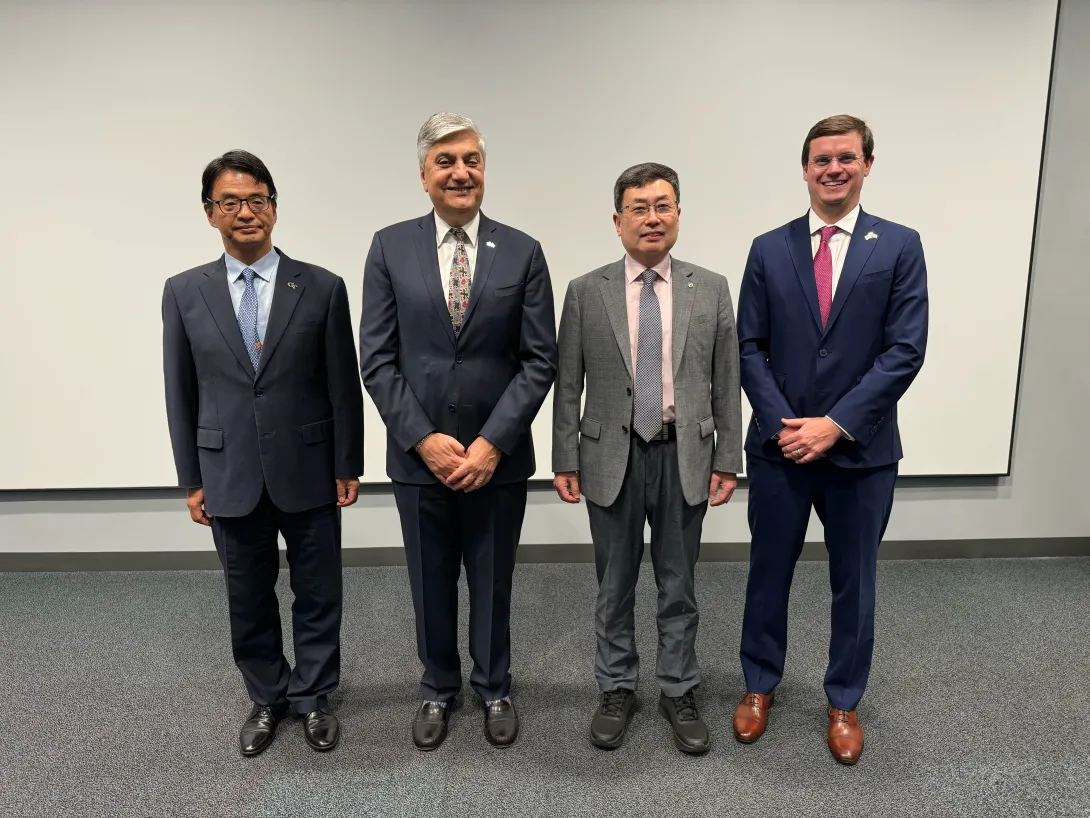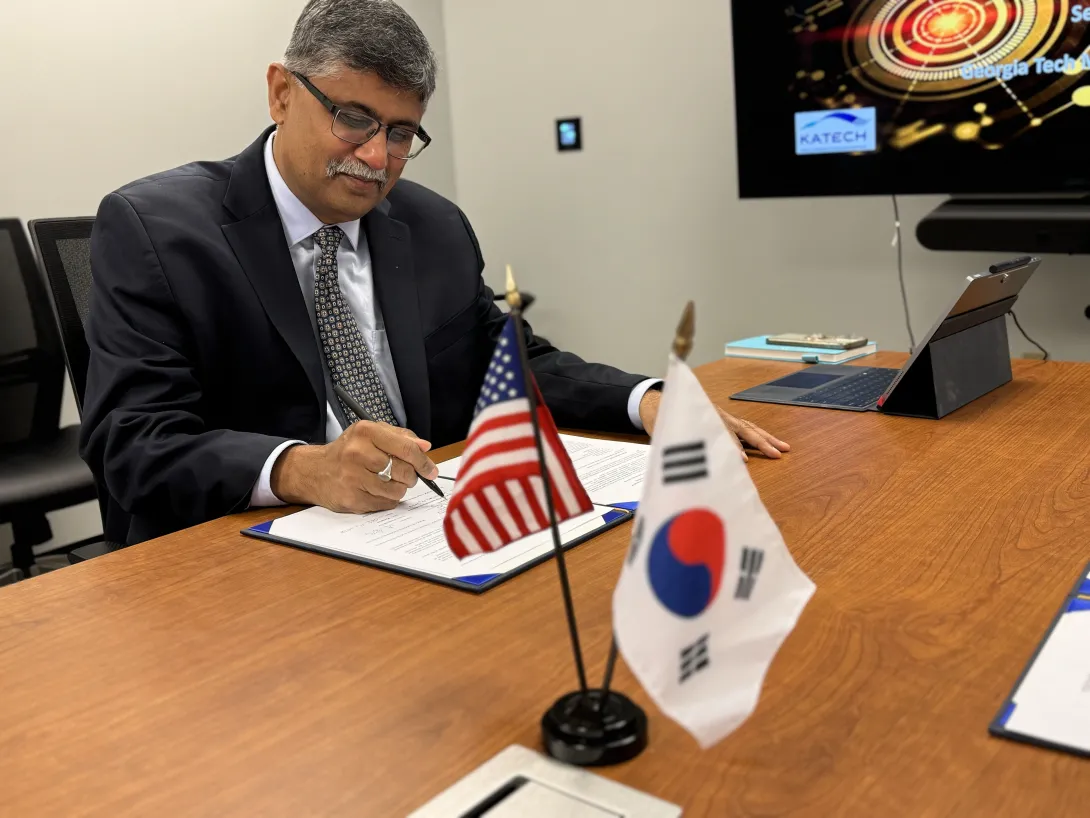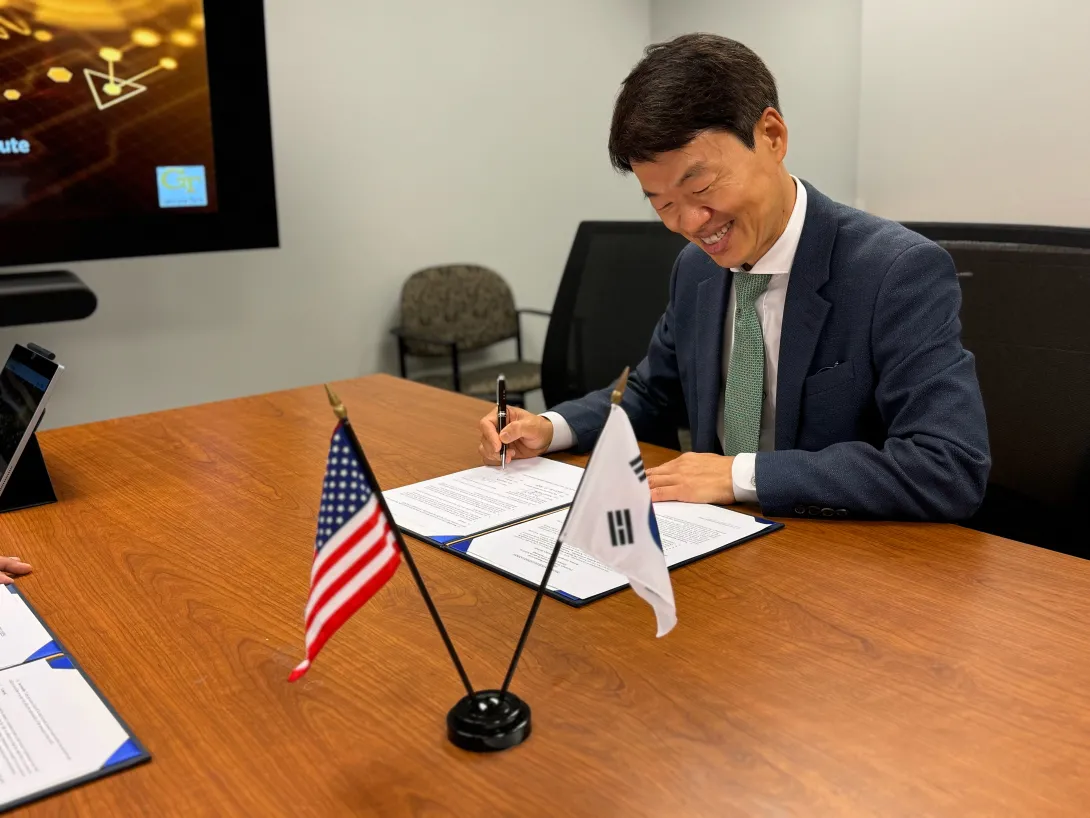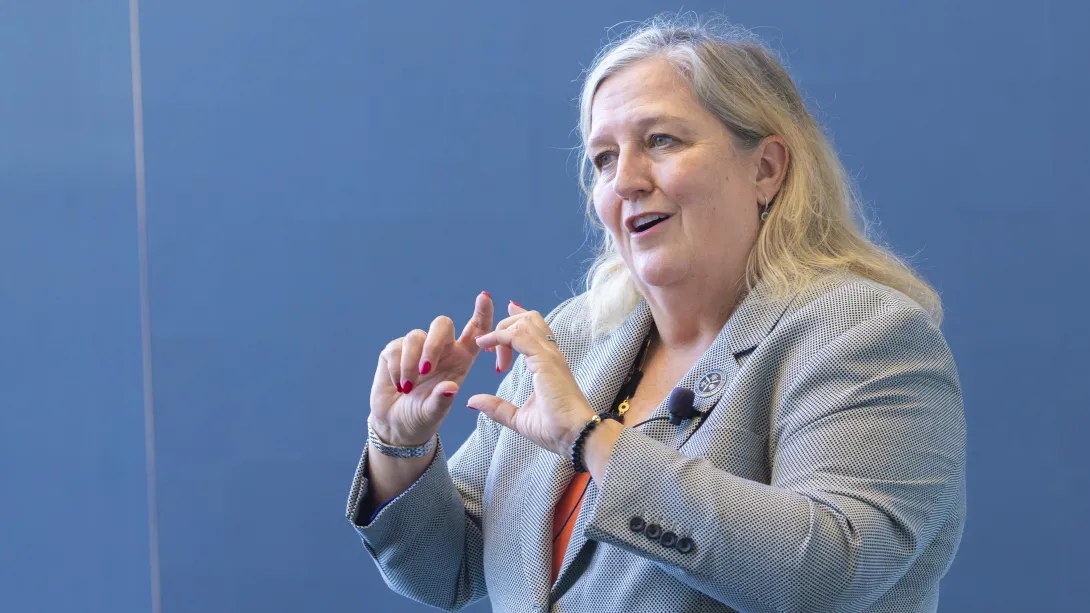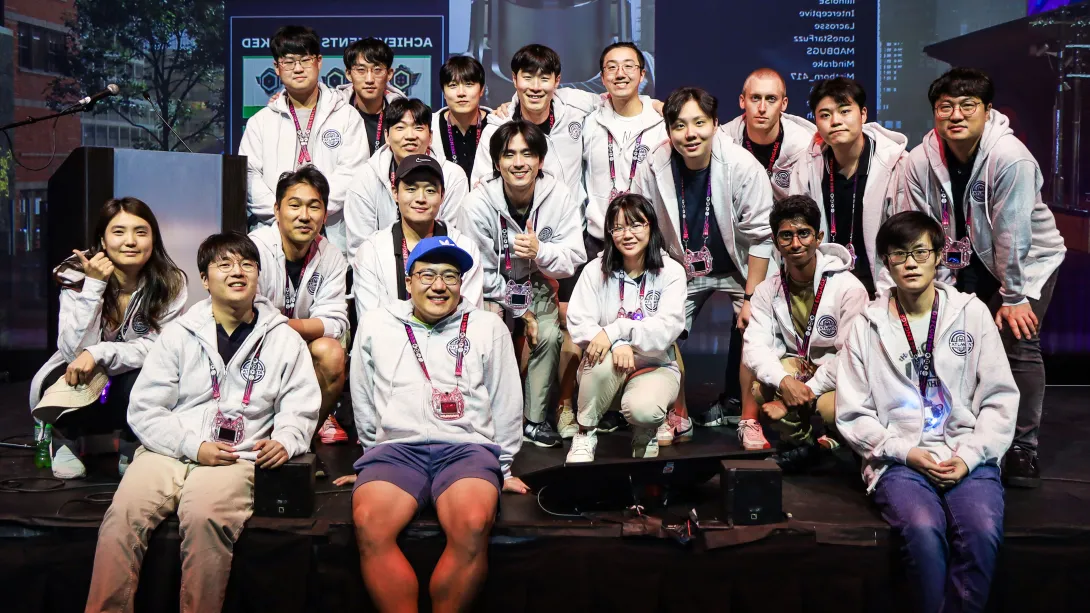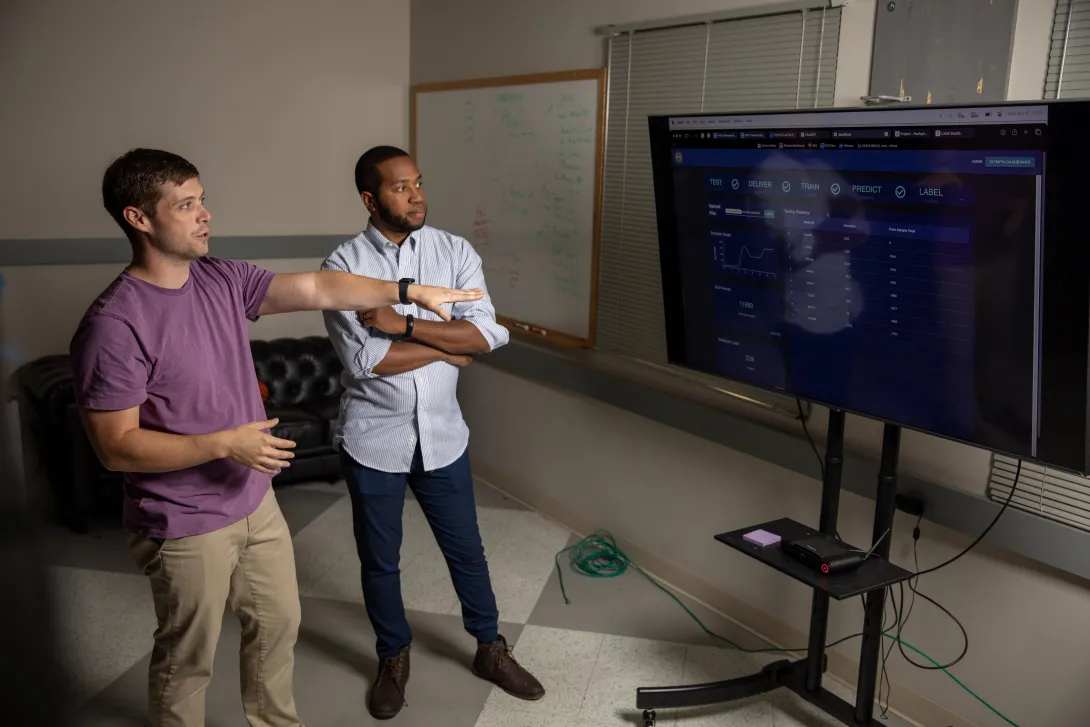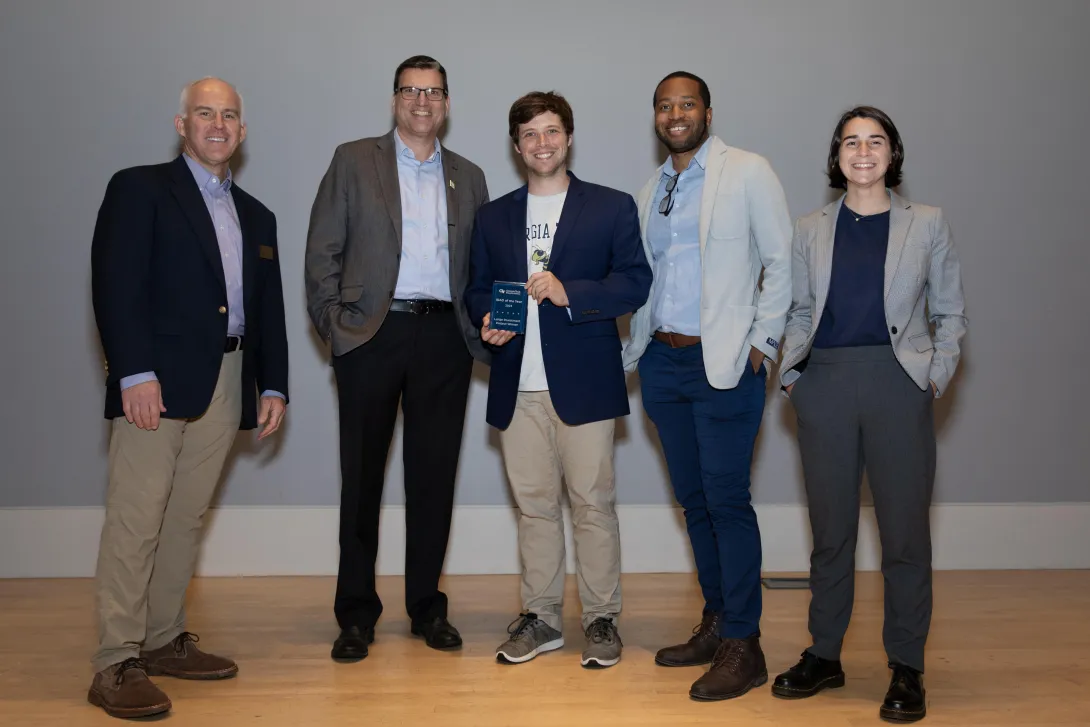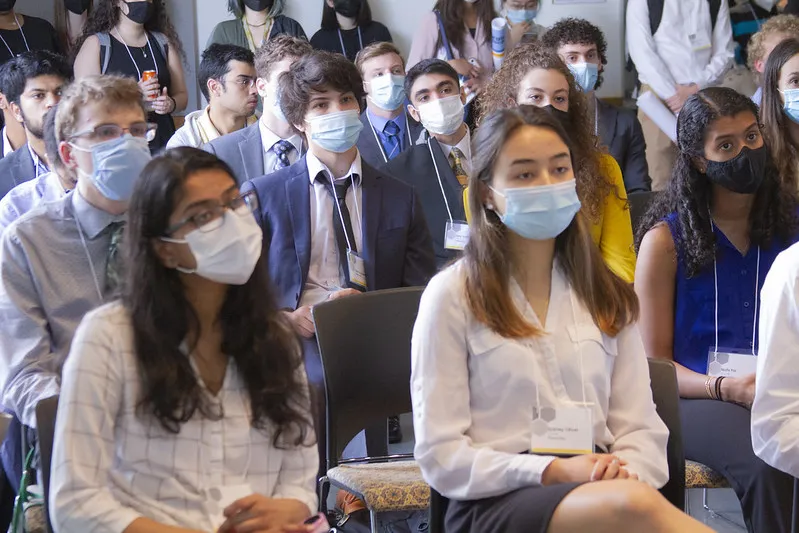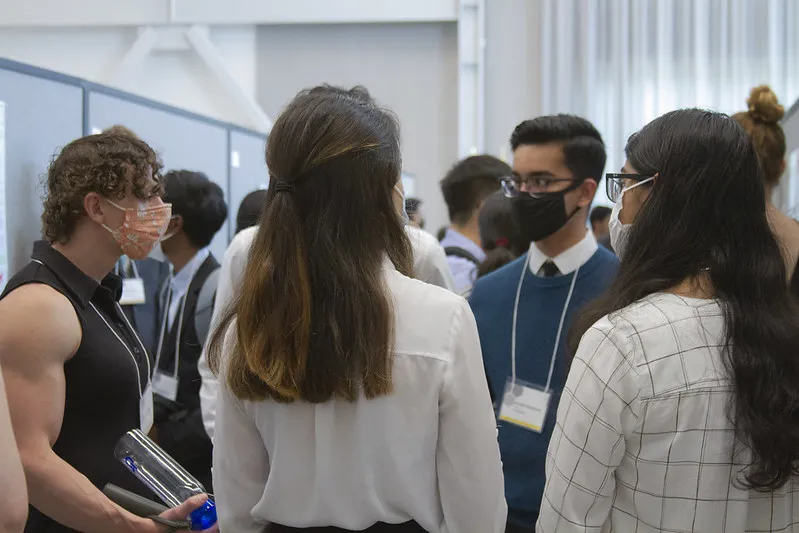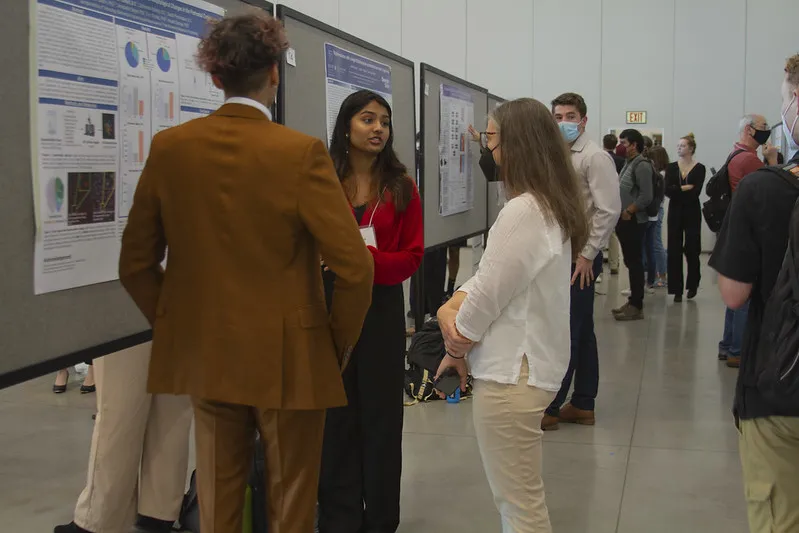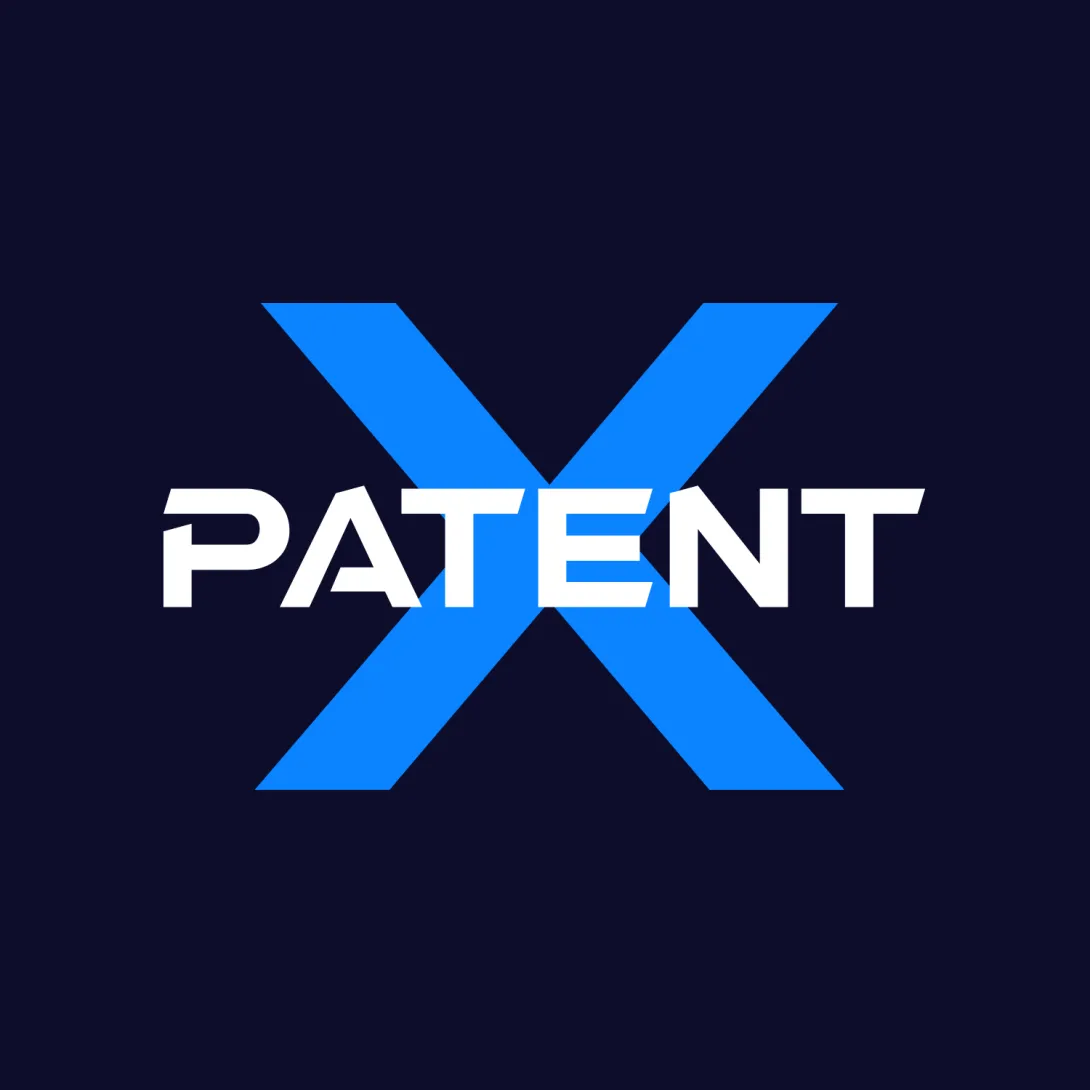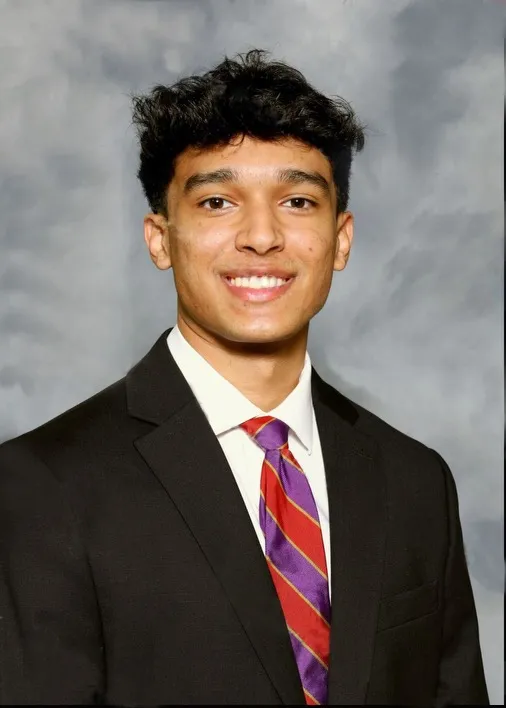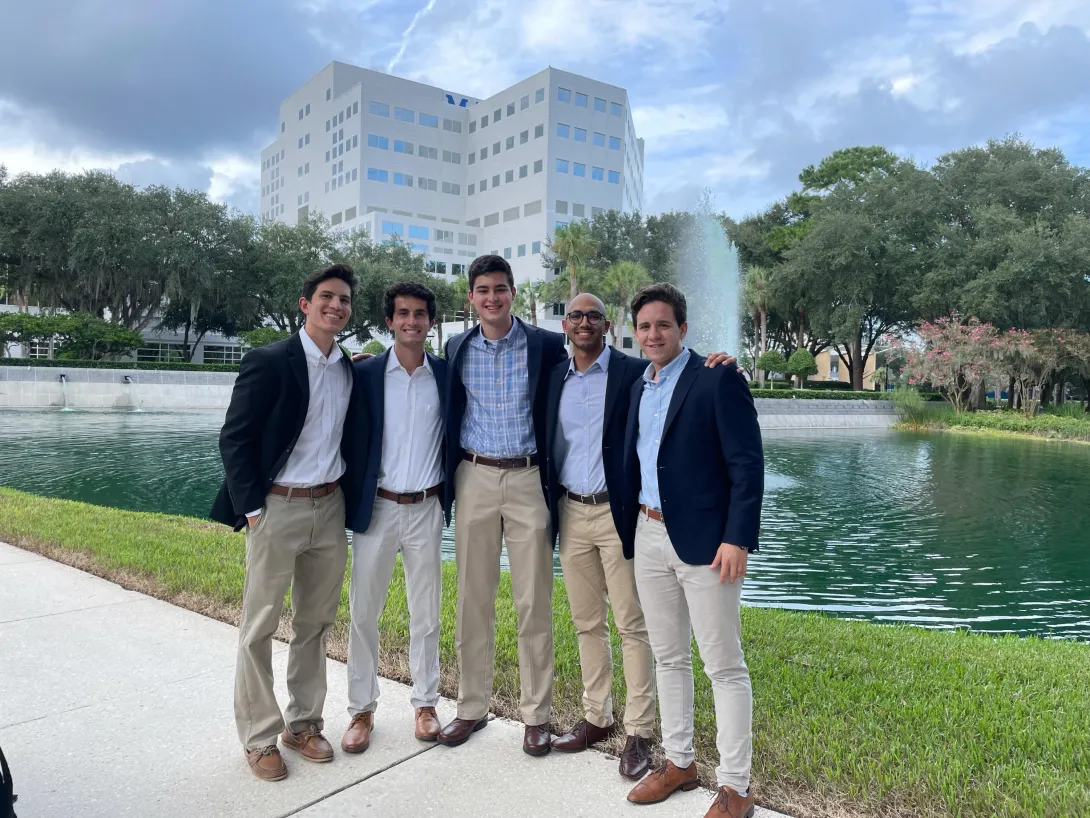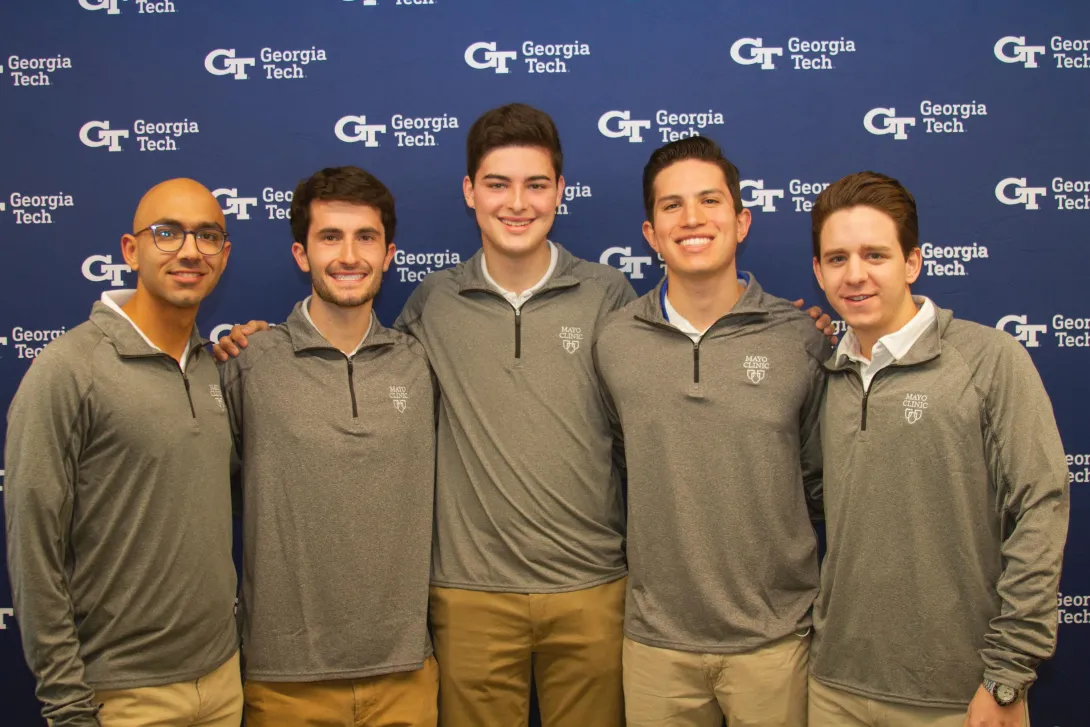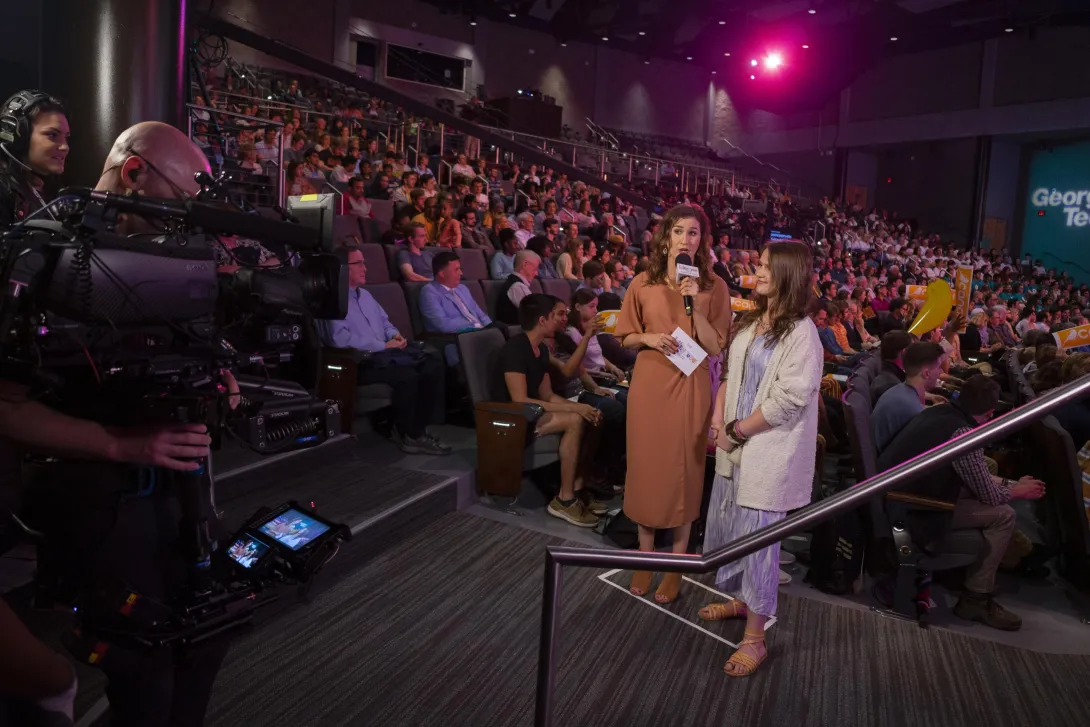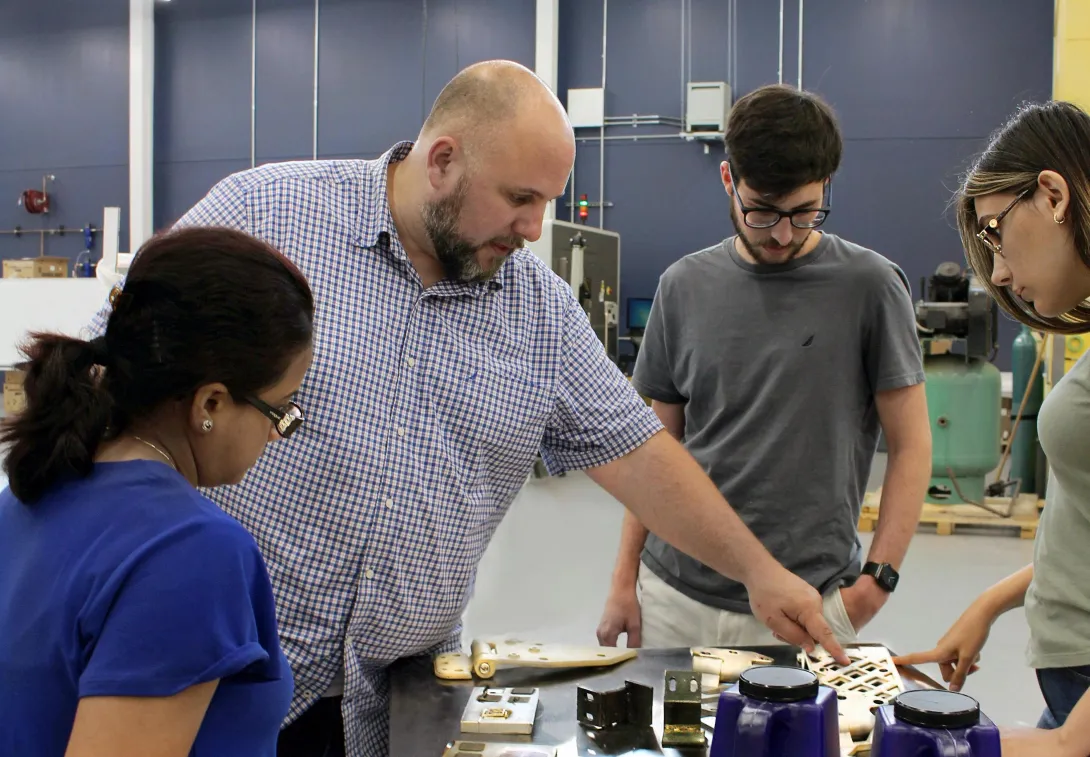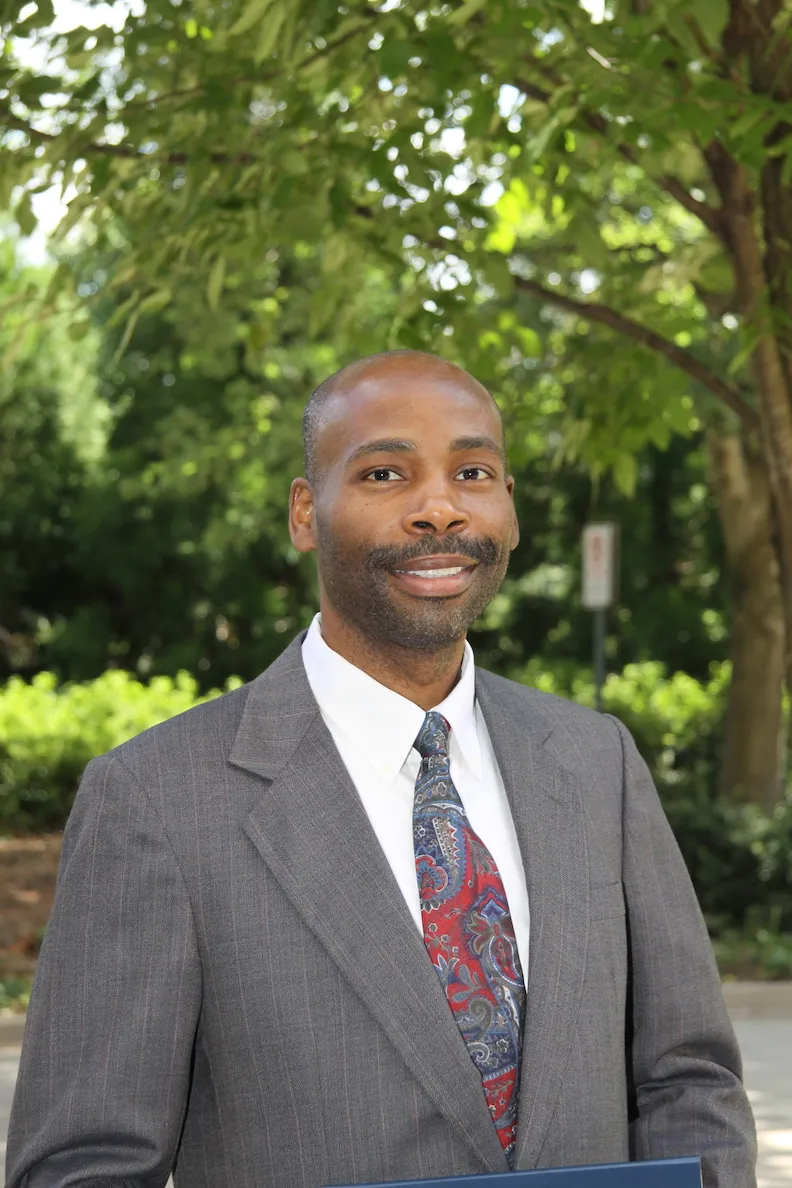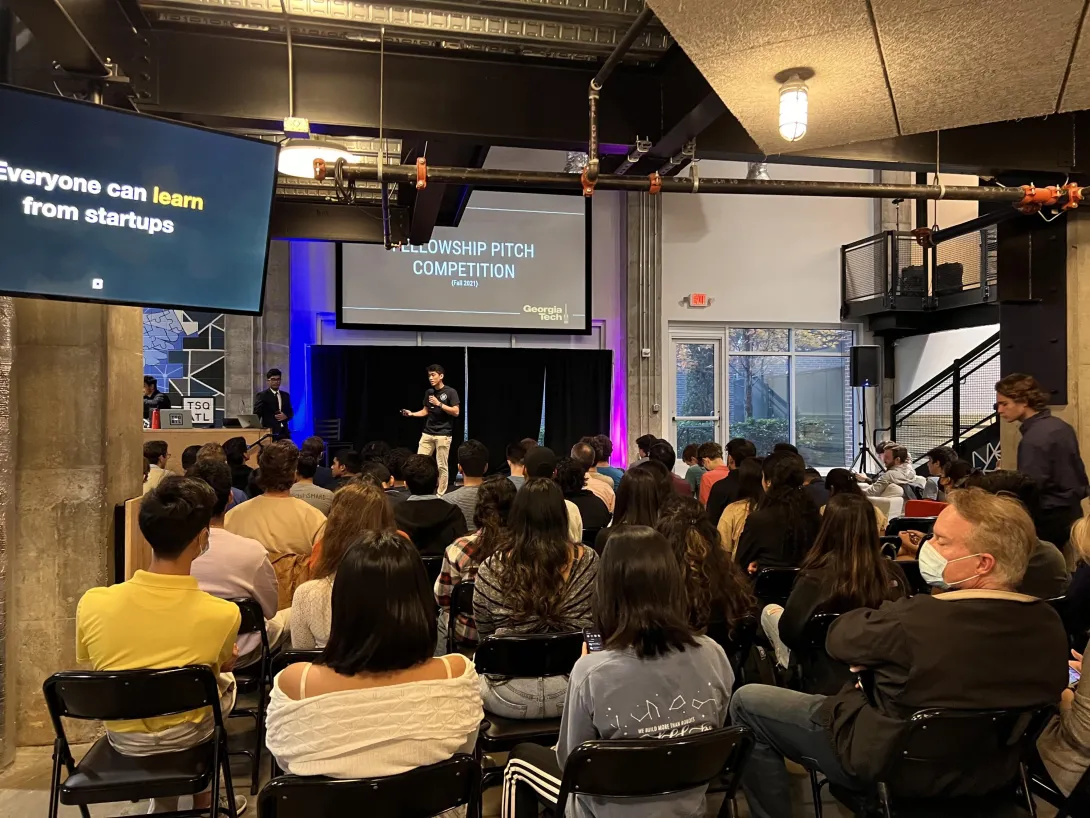Nov. 21, 2024
In a significant step towards fostering international collaboration and advancing cutting-edge technologies in manufacturing, Georgia Tech recently signed Memorandums of Understanding (MoUs) with the Korea Institute of Industrial Technology (KITECH) and the Korea Automotive Technology Institute (KATECH). Facilitated by the Georgia Tech Manufacturing Institute (GTMI), this landmark event underscores Georgia Tech’s commitment to global partnerships and innovation in manufacturing and automotive technologies.
“This is a great fit for the institute, the state of Georgia, and the United States, enhancing international cooperation,” said Thomas Kurfess, GTMI executive director and Regents’ Professor in the George W. Woodruff School of Mechanical Engineering (ME). “An MoU like this really gives us an opportunity to bring together a larger team to tackle international problems.”
“An MoU signing between Georgia Tech and entities like KITECH and KATECH signifies a formal agreement to pursue shared goals and explore collaborative opportunities, including joint research projects, academic exchanges, and technological advancements,” said Seung-Kyum Choi, an associate professor in ME and a major contributor in facilitating both partnerships. “Partnering with these influential institutions positions Georgia Tech to expand its global footprint and enhance its impact, particularly in areas like AI-driven manufacturing and automotive technologies.”
The state of Georgia has seen significant growth in investments from Korean companies. Over the past decade, approximately 140 Korean companies have committed around $23 billion to various projects in Georgia, creating over 12,000 new jobs in 2023 alone. This influx of investment underscores the strong economic ties between Georgia and South Korea, further bolstered by partnerships like those with KITECH and KATECH.
“These partnerships not only provide access to new resources and advanced technologies,” says Choi, “but create opportunities for joint innovation, furthering GTMI’s mission to drive transformative breakthroughs in manufacturing on a global scale.”
The MoUs with KITECH and KATECH are expected to facilitate a wide range of collaborative activities, including joint research projects that leverage the strengths of both institutions, academic exchanges that enrich the educational experiences of students and faculty, and technological advancements that push the boundaries of current manufacturing and automotive technologies.
“My hopes for the future of Georgia Tech’s partnerships with KITECH and KATECH are centered on fostering long-term, impactful collaborations that drive innovation in manufacturing and automotive technologies,” Choi noted. “These partnerships do not just expand our reach; they solidify our leadership in shaping the future of manufacturing, keeping Georgia Tech at the forefront of industry breakthroughs worldwide.”
Georgia Tech has a history of successful collaborations with Korean companies, including a multidecade partnership with Hyundai. Recently, the Institute joined forces with the Korea Institute for Advancement of Technology (KIAT) to establish the KIAT-Georgia Tech Semiconductor Electronics Center to advance semiconductor research, fostering sustainable partnerships between Korean companies and Georgia Tech researchers.
“Partnering with KATECH and KITECH goes beyond just technological innovation,” said Kurfess, “it really enhances international cooperation, strengthens local industry, drives job creation, and boosts Georgia’s economy.”
News Contact
Audra Davidson
Research Communications Program Manager
Georgia Tech Manufacturing Institute
Oct. 01, 2024
Even though artificial intelligence (AI) is not advanced enough to help the average person build weapons of mass destruction, federal agencies know it could be possible and are keeping pace with next generation technologies through rigorous research and strategic partnerships.
It is a delicate balance, but as the leader of the Department of Homeland Security (DHS), Countering Weapons of Mass Destruction Office (CWMD) told a room full of Georgia Tech students, faculty, and staff, there is no room for error.
“You have to be right all the time, the bad guys only have to be right once,” said Mary Ellen Callahan, assistant secretary for CWMD.
As a guest of John Tien, former DHS deputy secretary and professor of practice in the School of Cybersecurity and Privacy as well as the Sam Nunn School of International Affairs, Callahan was at Georgia Tech for three separate speaking engagements in late September.
"Assistant Secretary Callahan's contributions were remarkable in so many ways,” said Tien. “Most importantly, I love how she demonstrated to our students that the work in the fields of cybersecurity, privacy, and homeland security is an honorable, interesting, and substantive way to serve the greater good of keeping the American people safe and secure. As her former colleague at the U.S. Department of Homeland Security, I was proud to see her represent her CWMD team, DHS, and the Biden-Harris Administration in the way she did, with humility, personality, and leadership."
While the thought of AI-assisted WMDs is terrifying to think about, it is just a glimpse into what Callahan’s office handles on a regular basis. The assistant secretary walked her listeners through how CWMD works with federal and local law enforcement on how to identify and detect the signs of potential chemical, biological, radiological, or nuclear (CBRN) weapons.
“There's a whole cadre of professionals who spend every day preparing for the worst day in U.S. history,” said Callahan. “They are doing everything in their power to make sure that that does not happen.”
CWMD is also researching ways to implement AI technologies into current surveillance systems to help identify and respond to threats faster. For example, an AI-backed bio-hazard surveillance systems would allow analysts to characterize and contextualize the risk of potential bio-hazard threats in a timely manner.
Callahan’s office spearheaded a report exploring the advantages and risks of AI in, “Reducing the Risks at the Intersection of Artificial Intelligence and Chemical, Biological, Radiological, and Nuclear Threats,” which was released to the public earlier this year.
The report was a multidisciplinary effort that was created in collaboration with the White House Office of Science and Technology Policy, Department of Energy, academic institutions, private industries, think tanks, and third-party evaluators.
During his introduction of assistant secretary, SCP Chair Michael Bailey told those seated in the Coda Atrium that Callahan’s career is an incredible example of the interdisciplinary nature he hopes the school’s students and faculty can use as a roadmap.
“Important, impactful, and interdisciplinary research can be inspired by everyday problems,” he said. "We believe that building a secure future requires revolutionizing security education and being vigilant, and together, we can achieve this goal."
While on campus Tuesday, Callahan gave a special guest lecture to the students in “CS 3237 Human Dimension of Cybersecurity: People, Organizations, Societies,” and “CS 4267 - Critical Infrastructures.” Following the lecture, she gave a prepared speech to students, faculty, and staff.
Lastly, she participated in a moderated panel discussion with SCP J.Z. Liang Chair Peter Swire and Jerry Perullo, SCP professor of practice and former CISO of International Continental Exchange as well as the New York Stock Exchange. The panel was moderated by Tien.
News Contact
John Popham, Communications Officer II
School of Cybersecurity and Privacy | Georgia Institute of Technology
scp.cc.gatech.edu | in/jp-popham on LinkedIn
Get the latest SCP updates by joining our mailing list!
Aug. 20, 2024
For three days, a cybercriminal unleashed a crippling ransomware attack on the futuristic city of Northbridge. The attack shut down the city’s infrastructure and severely impacted public services, until Georgia Tech cybersecurity experts stepped in to stop it.
This scenario played out this weekend at the DARPA AI Cyber Challenge (AIxCC) semi-final competition held at DEF CON 32 in Las Vegas. Team Atlanta, which included the Georgia Tech experts, were among the contest’s winners.
Team Atlanta will now compete against six other teams in the final round that takes place at DEF CON 33 in August 2025. The finalists will keep their AI system and improve it over the next 12 months using the $2 million semi-final prize.
The AI systems in the finals must be open sourced and ready for immediate, real-world launch. The AIxCC final competition will award a $4 million grand prize to the ultimate champion.
Team Atlanta is made up of past and present Georgia Tech students and was put together with the help of SCP Professor Taesoo Kim. Not only did the team secure a spot in the final competition, they found a zero-day vulnerability in the contest.
“I am incredibly proud to announce that Team Atlanta has qualified for the finals in the DARPA AIxCC competition,” said Taesoo Kim, professor in the School of Cybersecurity and Privacy and a vice president of Samsung Research.
“This achievement is the result of exceptional collaboration across various organizations, including the Georgia Tech Research Institute (GTRI), industry partners like Samsung, and international academic institutions such as KAIST and POSTECH.”
After noticing discrepancies in the competition score board, the team discovered and reported a bug in the competition itself. The type of vulnerability they discovered is known as a zero-day vulnerability, because vendors have zero days to fix the issue.
While this didn’t earn Team Atlanta additional points, the competition organizer acknowledged the team and their finding during the closing ceremony.
“Our team, deeply rooted in Atlanta and largely composed of Georgia Tech alumni, embodies the innovative spirit and community values that define our city,” said Kim.
“With over 30 dedicated students and researchers, we have demonstrated the power of cross-disciplinary teamwork in the semi-final event. As we advance to the finals, we are committed to pushing the boundaries of cybersecurity and artificial intelligence, and I firmly believe the resulting systems from this competition will transform the security landscape in the coming year!”
The team tested their cyber reasoning system (CRS), dubbed Atlantis, on software used for data management, website support, healthcare systems, supply chains, electrical grids, transportation, and other critical infrastructures.
Atlantis is a next-generation, bug-finding and fixing system that can hunt bugs in multiple coding languages. The system immediately issues accurate software patches without any human intervention.
AIxCC is a Pentagon-backed initiative that was announced in August 2023 and will award up to $20 million in prize money throughout the competition. Team Atlanta was among the 42 teams that qualified for the semi-final competition earlier this year.
News Contact
John Popham
Communications Officer II at the School of Cybersecurity and Privacy
Jan. 16, 2024
Machine learning (ML) has transformed the digital landscape with its unprecedented ability to automate complex tasks and improve decision-making processes. However, many organizations, including the U.S. Department of Defense (DoD), still rely on time-consuming methods for developing and testing machine learning models, which can create strategic vulnerabilities in today’s fast-changing environment.
The Georgia Tech Research Institute (GTRI) is addressing this challenge by developing a Machine Learning Operations (MLOps) platform that standardizes the development and testing of artificial intelligence (AI) and ML models to enhance the speed and efficiency with which these models are utilized during real-time decision-making situations.
“It’s been difficult for organizations to transition these models from a research environment and turn them into fully-functional products that can be used in real-time,” said Austin Ruth, a GTRI research engineer who is leading this project. “Our goal is to bring AI/ML to the tactical edge where it could be used during active threat situations to heighten the survivability of our warfighters.”
Rather than treating ML development in isolation, GTRI’s MLOps platform would bridge the gap between data scientists and field operations so that organizations can oversee the entire lifecycle of ML projects from development to deployment at the tactical edge.
The tactical edge refers to the immediate operational space where decisions are made and actions take place. Bringing AI and ML capabilities closer to the point of action would enhance the speed, efficiency and effectiveness of decision-making processes and contribute to more agile and adaptive responses to threats.
“We want to develop a system where fighter jets or warships don’t have to do any data transfers but could train and label the data right where they are and have the AI/ML models improve in real-time as they’re actively going up against threats,” said Ruth.
For example, a model could monitor a plane’s altitude and speed, immediately spot potential wing drag issues and alert the pilot about it. In an electronic warfare (EW) situation when facing enemy aircraft or missiles, the models could process vast amounts of incoming data to more quickly identify threats and recommend effective countermeasures in real time.
AI/ML models need to be trained and tested to ensure their effectiveness in adapting to new, unseen data. However, without having a standardized process in place, training and testing is done in a fragmented manner, which poses several risks, such as overfitting, where the model performs well on the training data but fails to generalize unseen data and makes inaccurate predictions or decisions in real-world situations, security vulnerabilities where bad actors exploit weaknesses in the models, and a general lack of robustness and inefficient resource utilization.
“Throughout this project, we noticed that training and testing are often done in a piecemeal fashion and thus aren’t repeatable,” said Jovan Munroe, a GTRI senior research engineer who is also leading this project. “Our MLOps platform makes the training and testing process more consistent and well-defined so that these models are better equipped to identify and address unknown variables in the battle space.”
This project has been supported by GTRI’s Independent Research and Development (IRAD) Program, winning an IRAD of the Year award in fiscal year 2023. In fiscal year 2024, the project received funding from a U.S. government sponsor.
Writer: Anna Akins
Photos: Sean McNeil
GTRI Communications
Georgia Tech Research Institute
Atlanta, Georgia
The Georgia Tech Research Institute (GTRI) is the nonprofit, applied research division of the Georgia Institute of Technology (Georgia Tech). Founded in 1934 as the Engineering Experiment Station, GTRI has grown to more than 2,900 employees, supporting eight laboratories in over 20 locations around the country and performing more than $940 million of problem-solving research annually for government and industry. GTRI's renowned researchers combine science, engineering, economics, policy, and technical expertise to solve complex problems for the U.S. federal government, state, and industry.
News Contact
(Interim) Director of Communications
Michelle Gowdy
Michelle.Gowdy@gtri.gatech.edu
404-407-8060
Apr. 27, 2022
By Frida Carrera
On Wednesday, April 13th 2022, the Undergraduate Research Opportunities Program (UROP) hosted the 16th annual Spring Undergraduate Research Symposium. UROP’s annual symposium is Georgia Tech’s largest undergraduate research colloquium and allows students to present their research and gain valuable skills and presentation experience. Each year the symposium also presents awards to the top poster and oral presentation from each college and honors the Outstanding Undergraduate Researcher (OUR) from each college. And with over 40 oral presentations and nearly 90 poster presentations, this year’s symposium proved to be another success for UROP and Georgia Tech.
This year the symposium was held in Exhibition Hall and opened with an introduction and keynote address to students, faculty, and other non-presenters. Shortly after, the event moved into the poster presentations segment where undergraduate students displayed their research to judges, faculty, and other attendees. The oral presentations followed soon after and gave student researchers the opportunity to go more in-depth with their research and findings and answer any questions the judges and attendees had. To end the event, sponsoring colleges and departments recognized Outstanding Undergraduate Researchers from their respective colleges. Additionally, the symposium judges were tasked with selecting the top student researchers having exceptional poster and oral presentations.
Any Georgia Tech undergraduate student interested in presenting their research is encouraged to apply for future symposiums and to build on research presentation skills, connect with other undergraduate researchers and faculty, and the chance to be recognized with awards by members of the Georgia Tech research community. UROP also hosts other research-related events and workshops throughout the school year to assist undergraduate students interested in research and build on their passions!
To view the list of awardees and pictures from the event visit: https://symposium.urop.gatech.edu/awards/
To learn more about undergraduate research at Georgia Tech visit: https://urop.gatech.edu/
Mar. 18, 2022
By Frida Carrera
During the summer of 2021, computer science student Neil Sanghavi and computer science recent grad Ahan Shah, both from Fairfax, VA, reconnected to catch up with one another and discuss the projects they were working on. In doing so they discovered a mutual resolve to create something using innovative technology and solve a problem relating to intellectual property, specifically patents. Both Neil and Ahan had just started to get into crypto trading and realized that NFT technology had more to offer than its collectible aspect. Here the idea of PatentX was created: to use NFT technology to provide utility in an antiquated space that lacked efficiency.
“It is estimated that we have $1 trillion in unused IP in the United States currently. Additionally, it is reported that there is $25.6 billion worth of patent monetization available today. This is why we created PatentX, a blockchain-backed marketplace to facilitate intellectual property transactions. We built this to make sure the little man innovators and entrepreneurs have an outlet to monetize and connect their patents with the world. Not only that, we are creating tools for large businesses, law firms, venture capitals to manage all of their IP on the blockchain that can handle transactions in seconds.”
Neil and Ahan describe their product launch process as a great learning experience and are firm believers that there can never be too much help. They are currently supported by DXPartners and have received help from various mentors and blockchain professionals. They have been able to traverse obstacles and learn about the marketing, finance, and business aspects behind building a startup despite coming from a technical background.
Their vision for PatentX is to disrupt the traditional way intellectual property is being transacted and to become the World’s Next Web3 Patent Office. PatentX will be releasing an NFT collection of the most historic patent innovations this early March and encourage interested individuals to stay tuned for their launch.
To learn more about PatentX visit their social media:
Twitter: @PatentXNFT
Instagram: @PatentX.io
To learn more about student innovation at Georgia Tech visit: https://innovation.cae.gatech.edu/
Mar. 14, 2022
By Frida Carrera
On April 2, 2022, Team carSEAL will represent Georgia Tech in the 6th annual ACC InVenture Prize Competition hosted this year by Florida State University. Team members Shovan Bhatia, Joshua Cruz, Nicholas Lima, Derek Prusener, and Giancarlo Riccobono will compete against other teams in the ACC Conference for a chance to win up to $30,000 in prizes.
carSEAL began with five biomedical engineering students collaborating on a capstone project. After being accepted into the highly sought-after Mayo Clinic Capstone Project, they received mentorship from Dr. Rabih Tawk, a world-renowned neurosurgeon. With his guidance, they learned that surgeons currently lack the tools to close the carotid artery after endovascular procedures. Through a pragmatic approach, the team developed 100+ conceptual designs and iterations. After numerous discussions with attending surgeons across the nation and preliminary testing, they developed carSEAL – a vascular closure device for the carotid artery.
So far, the team has found the InVenture Prize process to be exhilarating.
“Through each round of this process, we have seen incredible teams working on impactful projects and it is exciting to be surrounded by such brilliant minds from numerous backgrounds. It has been especially rewarding working with so many supportive advisors from Georgia Tech, who have been through the startup process and have freely offered their expertise. Along each step of this process, we have learned something new to refine our pitch and ensure we are presenting our most competitive self at the ACC.”
Currently, aside from preparing for the ACC InVenture Prize, the carSEAL team is performing benchtop lab testing to evaluate its efficacy in animal models. Soon after, the team will be moving to pre-clinical studies on their path to obtaining FDA clearance before carSEAL is commercialized. Winning the ACC InVenture Prize would help them gain more traction and gather sufficient funds to help them with this process.
“I am extremely proud of our team’s achievements in the short 6 months that we have worked together. carSEAL has gained a lot of traction already and we are excited to see how far we can take this, hopefully bringing carSEAL to clinical practice within a few years,” Bhatia stated.
The Georgia Tech community can support carSEAL in the competition by voting for them for the People’s Choice Awards by visiting: https://accinventureprize.com/peoples-choice-voting. Online voting begins March 28.
To learn more about the ACC InVenture Prize visit https://accinventureprize.com.
Mar. 01, 2022
By Frida Carrera
After almost a year of preparation, practice, and refinement, Georgia Tech’s annual InVenture Prize is down to six finalists competing in the final round on March 16th. In this televised round, the final teams will pitch their inventions to a panel of judges and compete for the top prize of $20,000, assistance in patent-filing, and a spot in CREATE-X’s Startup Launch program.
In its 14th year, the InVenture Prize competition features different innovations created by Georgia Tech students from all disciplines and backgrounds. For months prior to the final round, the finalists received coaching and assistance from mentors and coaches on building their prototypes, developing business models, and rehearsing their pitches to investors. The final six teams were chosen from previous preliminary and semifinal rounds that included a broad range of competitors.
The finals of the InVenture Prize will air live from Georgia Tech’s Ferst Center for the Arts at 7:30 p.m. on March 16th on Georgia Public Broadcasting.
The 2022 finalist teams are:
The Foambuster: The Foambuster is a unique handheld tool that allows construction contractors to drastically cut down on the mess, hassle, and money spent that comes with installing exterior insulation.
Edward Diller, Mechanical Engineering, Los Angeles, CA
Davis Waln, Mechanical Engineering, Atlanta, GA
Christophe Senghor, Mechanical Engineering, Peachtree City, GA
Katelyn Sand, Mechanical Engineering, Westlake Village, CA
Jaime Paris Meseguer, Mechanical Engineering, Spain
Magic Crop: An application that uses the power of Artificial Intelligence and the rule of thirds to format any number of inputted pictures into the perfect headshot within seconds and without ever sending any images to the cloud or to a third-party server.
Megan Dass, Computer Science, Woodbridge, VA
Reflex: Emergency Medical Drone Response System to deliver life-saving medical equipment.
Nevin Gilbert, Computer Science, Boulder, CO
Usman Jamal, Computer Science, Tucker, GA
Sola: Sola provides a data-driven supplemental insurance plan which covers immediate out-of-pocket expenses for US homeowners following losses from tornadoes.
Brayden Drury, Mechanical Engineering, Park City, Utah
Wesley Pergament, Mechanical Engineering, Old Westbury, NY
StrideLink: Accessible gait analysis wearable for remote monitoring of walking asymmetry.
Marzeah (Zea) Khorramabadi, Computer Engineering, Birmingham, AL
Cassandra (Cassie) McIltrot, Biomedical Engineering, Sykesville, MD
Neel Narvekar, Computer Engineering, Arcadia, CA
Tony Wineman, Electrical Engineering, Woodstock, GA
Tabnam: AI-powered shopping assistant that leverages the knowledge of user experience data.
SooHoon Choi, Computer Science, South Korea
Daksh Gupta, Computer Science, Noida, India
Robert (Davis) Liddell, Computer Science, Lutherville, MD
Ethan Perry, Computer Science, Wellesley, MA
To request tickets for the event visit: https://inventureprize.gatech.edu/form/inventure-prize-ticket-request-f
To learn more about InVenture Prize visit: https://inventureprize.gatech.edu/
Dec. 16, 2021
The global supply chain has been rocked by disruptions triggered largely by the coronavirus pandemic, resulting in a cascade of shortages on a host of products ranging from computer chips to medications.
But supply chain disruptions also highlight the potential vulnerabilities in the U.S. manufacturing sector’s critical segments like defense.
To help manufacturers across the state, the Georgia Institute of Technology has launched the Georgia Manufacturing 4.0 Consortium to work with those businesses in defense and related industries become more resilient and less susceptible to supply chain disruptions. The Consortium, which will begin accepting members in April 2022, will work with Georgia defense manufacturers to incorporate cybersecurity protocols, smart technologies such as sensor packs, machine learning, artificial intelligence, and other best practices under Industry 4.0 technology standards.
Led by Aaron Stebner, associate professor in the George W. Woodruff School of Mechanical Engineering and the School of Materials Science and Engineering, the Consortium is an 18-month pilot funded by a Department of Defense Office of Local Defense Community Cooperation (OLDCC) grant of nearly $1 million. Georgia Tech is working in partnership with Spelman College, the Technical College System of Georgia, and the Georgia Department of Economic Development, under the grant to develop workforce, training manuals, a curriculum, and to support businesses in adapting to economic and technological changes that emerge at a much more rapid pace today.
“It’s a cooperative effort that’s really focused on helping to get modern technologies to these Georgia manufacturers. This is about establishing a community of manufacturers who all want to move forward but don’t have the bandwidth or capabilities do it individually,” Stebner said.
The Consortium has three goals. The first is to increase the manufacturing defense supply chain’s resilience and diversification. That will allow those companies to pivot quickly in response to demand and let non-defense-related industries enter the supply chain at critical junctures. The second goal is to work with Georgia manufacturers in adopting new technologies and address challenges that put those businesses at risk.
Lastly, the Consortium is to be a conduit that helps small- and medium-sized manufacturers test out innovations using Georgia Tech resources such as the Advanced Manufacturing Pilot Facility, connect manufacturers with each other, and potentially unlock new markets and collaboration opportunities.
While the focus is on defense manufacturing, the Consortium is open to all manufacturers.
“We want to help as many manufacturers as we can, to grow a bigger pie that helps everybody, lowers risk, and allows companies to be part of building innovative solutions” Stebner said.
Manufacturing Supports Georgia Economy
National Association of Manufacturers data show that manufacturing accounts for $61.1 billion in economic activity, roughly 10% of Georgia’s total output. The industry includes more than 6,600 firms that employ nearly 400,000.
At $14 billion a year, Georgia is ranked 13th in federal defense spending. Roughly 1,200 manufacturers in the state are in defense or related industries. Those include information technology companies that support cybersecurity, wireless communications, and other innovations that are critically essential to Industry 4.0 in defense manufacturing.
University partners from the Technical College System of Georgia and Spelman College will look to take the Consortium findings and data from the work they do with member companies to create educational programming and workforce training.
Today, there is a need for more workers in machine learning and other aspects of advanced manufacturing, as well as a need to change perceptions of manufacturing, especially in rural parts of the state, Stebner explained.
To that end, the Technical College System of Georgia could develop programming for students within its two-year education curriculum. It also has a mobile manufacturing unit that could be taken to rural parts of the state and used as a tool to highlight opportunities in manufacturing and dispel misconceptions about the industry.
The all-women’s Spelman College, one of the nation’s premier historically black colleges and universities, launched an extended reality program in the fall of 2020. That program aims to integrate art, technology, and narrative on a gaming platform which is familiar and engaging for students. Those students will develop the technical skills to develop games, create immersive virtual experiences, and develop visual simulations for research, education, and training.
For Consortium members, Spelman’s extended reality program can be used to help turn research data gathered from them into workforce training and development modules.
“Spelman has a long history of graduating women in the natural sciences, and that history has recently led the Department of Defense to distinguish the College as a Center of Excellence for educating women in STEM,” said Jerry Volcy, a Spelman professor and co-director of the Spelman Innovation Lab.
The extended reality program furthers Spelman’s goal to increase the technological readiness of its graduates.
“Spelman has a long record of forging pathways for women of color into new spaces. Today, these spaces include extended reality, defense and, to some extent, manufacturing research,” Volcy said. “From the College’s perspective, participation in the Consortium has the dual potential of creating and discovering new pathways into these industries while immediately providing real-world applications laboratory for the developing extended reality program.”
Fulfilling Georgia Tech’s Mission
Within Georgia Tech, the Georgia Manufacturing Extension Partnership and the Georgia Tech Manufacturing Institute will support Consortium efforts.
The Consortium reflects Georgia Tech’s broader mission to further its Advanced Manufacturing Initiative, said George White, Georgia Tech’s interim vice president of Industry Collaboration.
“The anticipated research impact envisioned through the Defense Manufacturing Consortium will strengthen Georgia Tech’s positioning in enabling major public private collaborations,” White said. “The advent of the Consortium represents the opportunity to convene key stakeholders from government, academics, and industry to innovate and solve the most challenging problems in manufacturing.”
News Contact
Writer and media relations contact:
Péralte C. Paul
peralte.paul@comm.gatech.edu
404.316.1210
Dec. 10, 2021
By Frida Carrera
On December 3, 2021, Startup Exchange presented the Fall 2021 Fellowship Pitch Competition sponsored by the Georgia Tech Student Innovation Program, Office of Undergraduate Education. The event took place at ATL Social Club in Tech Square, a major startup hub situated on Georgia Tech’s campus and perfect for those eager for innovation at GT. The event also welcomed partner companies and recruiters such as NCR and Stord.
At this pitch-style event, six founder teams presented their innovative pitches and competed for first, second, and third place, each with a cash prize to aid in the advancement of their ideas. The first and second place winners of the competition were determined by three guest judges: Kathryn Petralia, co-founder of Kabbage and Drum; Thomas Suarez, co-founder of Teleport and Thiel Fellow; and Evan Jarecki, serial entrepreneur and BM at Startup Atlanta. The event commenced with a brief introduction by Startup Exchange executive board members, followed by presentations from the 6 teams including Fino, InSite, Jargon, and Tokenstack. After hearing each team’s pitch, the judges had time to deliberate and select the top two winners while the audience voted for the People’s Choice winner. Meanwhile, attendees were also able to hear from the partner companies and network while enjoying free perks such as food and beverages.
“There are students everywhere across campus really starting on their start-ups and pursuing their dreams. Atlanta is a growing city and Georgia Tech is the perfect hub for that. These teams, we’re introducing them to entrepreneurship and giving those resources and intro-connections. By doing so, we’re inspiring them in a way. It’s just a great learning experience for them,” explained Startup Exchange’s Director of Fellowship Revanth Tiruveedhi.
Following the intermission, the judges presented the first-place award of $750 to Jargon, a browser extension that points out red flags in user contract agreements, as pitched by team members Kaleb Rasmussen and Devansh Khunteta. Second place of $500 was awarded to Eartheal by team members Colin Burnett, Philip Colt, Neal Austensen, and Brandon Sherrard. People's Choice of $250 was awarded to Tokenstack by team members Nitin Paul, Samrat Sahoo, Yatharth Bhargava, and Mohit Sahoo. The event then closed with remarks by Startup Exchange’s board members and photos with the participants.
To learn more about student innovation at Georgia Tech visit https://innovation.gatech.edu/
Pagination
- 1 Page 1
- Next page
